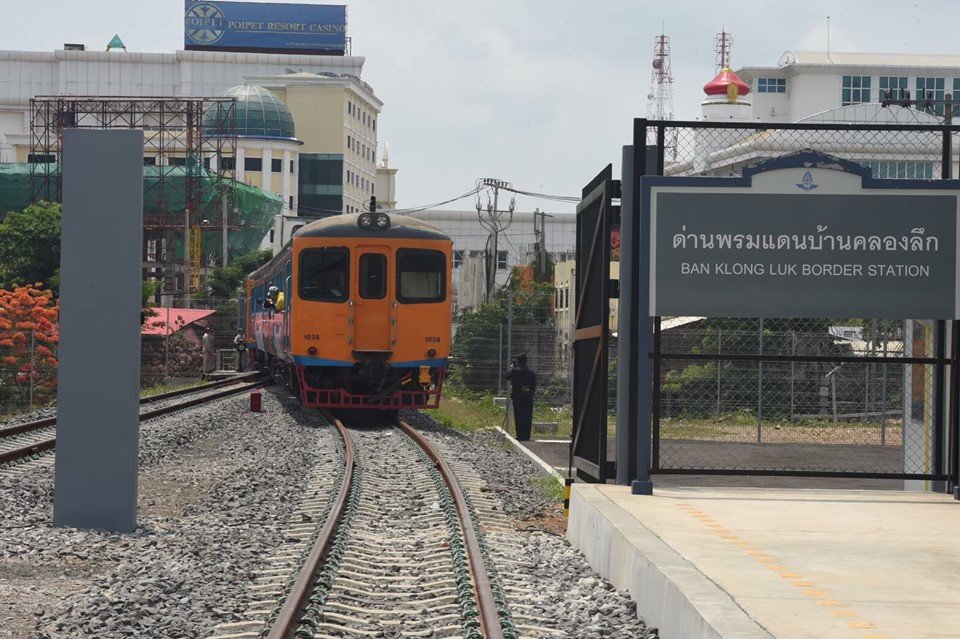THE GOVERNMENT’S policy to fast-track transport mega-projects worth Bt1.79 trillion might not stimulate the economy as much as hoped.
Also, the rail projects by giant economies – China and Japan – were put in the plan as first priority to be carried out even though many market watchers harbour doubts that the projects would start construction any time soon.
However, many transport experts say this could be good for the country in the long haul if Thailand aims to become a regional transport hub. The rail lines will also carry urbanisation to remote areas.
Deputy Prime Minister Somkid Jatusripitak said recently that he did not want to see investment in transport projects only to spur the economy directly, but also to restructure the infrastructure system for “connectivity” with other Asean countries and restructure the “competitiveness” of the country’s industry.
Twenty transport and related projects were lined up as first priority starting in the first quarter of fiscal 2016 (last quarter of the 2015 calendar year) as part of the country’s eight-year strategic transport development plan going to 2022.
The rail projects by China for the Nong Khai-Map Ta Phut route and Japan for the Bangkok-Chiang Mai route – with a combined investment of almost Bt1 trillion – are expected to take more time, even though some progress can be seen.
For the medium-speed Sino-Thai rail project, the two governments joined in a groundbreaking ceremony for the operation control centre at the Chiang Rak Noi railway station in Ayutthaya on December 19.
That marked the commencement of construction. It had taken nine rounds of negotiations for the work to materialise. The government-to-government agreement was signed on December 19, 2014, for a five-year period.
However, the Sino-Thai rail project faced criticism after the cost estimate swelled to Bt530 billion from Bt400 billion.
Japan’s high-speed-rail project is still grinding ahead step by step.
The Thai and Japanese governments are cooperating to upgrade the existing single-track railway to a 1-metre-gauge double-track route. They will jointly develop two missing links – a 26-kilometre section between Kanchanaburi and Ban Nam Phu Ron and a section between Aranyaprathet and Khlong Luek.
Japan is also interested in building another line linking Myanmar at the border of Tak with Laos at the border of Mukdahan.
Other high-speed-rail projects for the Bangkok-Rayong and Bangkok-Hua Hin routes are still stuck, though Italian-Thai Development (ITD) recently said it would join with Charoen Pokphand Group for bidding on the Bangkok-Rayong route.
“I think there will be only five or six potential projects [for which bidding started last quarter) that can start construction this year,” said Phongsarit Tantisuvanichkul, director of Bangkok Expressway and Metro.
The Bang Pa-in-Korat and Bang Yai-Kanchanaburi motorways are waiting to open for bidding, which is expected to take place in the third or fourth quarter of this year.
For the metro rail network, the Orange Line was just approved by the Cabinet.
The Yellow, Pink and Red suburban lines as well as the Prachuap Khiri Khan-Chumphon dual-track railway are set to be developed under the public private partnership (PPP) model.
The process will take at least 10 months, although it was shortened from almost 24 months, before contract signing. This means that construction will likely commence by the end of this year or in 2017.
“There will be intense competition for the metro line segment this year as everybody wants to get jobs,” Phongsarit said.
Local operators need to seek foreign partners, he said.
Large contractors like Ch Karnchang, ITD and Sino-Thai Engineering and Construction, however, are still highlighted as stock picks this year as they have a chance to win the state projects, according to many brokerages.
Source: http://www.nationmultimedia.com/business/Transport-projects-seen-as-longer-term-benefits-30276441.html


